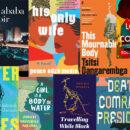South Africa: plus í§a change… – By Richard Dowden

 I took a complete break over Christmas and New Year but instead of going somewhere sensible like Scotland or Sri Lanka I went to South Africa and Lesotho. Sunshine everyday and magnificent scenery with lots of Braais, Boerewors and wine, but it was impossible to switch off completely.
I took a complete break over Christmas and New Year but instead of going somewhere sensible like Scotland or Sri Lanka I went to South Africa and Lesotho. Sunshine everyday and magnificent scenery with lots of Braais, Boerewors and wine, but it was impossible to switch off completely.
South Africa reminds me of the line in Giuseppe di Lampedusa’s great novel The Leopard when the Risorgimento hits Sicily and the old order is under threat: “If we want things to stay as they are, things will have to change” says the prince.
There were moments on this trip when I struggled to spot the difference between 1979 when I first visited the country and now. At that time there were still some houses in rich areas that were not surrounded by high walls and razor wire. Now there are none. The whites have retreated deeper into their bunkers and have been joined by some richer blacks.
The poor – even a few whites these days – still live in “˜townships’. Some have been rebuilt, but the rambling conglomerations of shacks made from random boards and corrugated iron are still visible everywhere and new ones are continually popping up. At a social level not much has changed. Social events, except at the highest level, are rarely racially mixed.
The death of Nelson Mandela might have reminded people of where he had come from and where he was trying to take the country, but there is little sign of it in today’s South Africa. The best line to come from the coverage of his funeral was: “we need to stop worshipping him and start emulating him”.
But 2014 is election year in South Africa and the manoeuvrings are already well under way. Zuma and the African National Congress will win, the question is by how much. Here are the percentages of the vote won by the ANC since 1994:
1994 – 62.65%
1999 – 66.35%
2004 – 69.69%
2009 – 65.9%
There is no chance of the ANC losing an election in the near future but they might drop further below a two thirds majority in parliament. All constitutional changes in South Africa need that majority and so far the ANC has had it, making 17 changes, mostly to strengthen the presidency and central government. Since many in the ANC would like South Africa to be a one party state with the ANC as the sole and permanent representative of the nation, the loss of that two thirds majority would be a major blow.
What I found particularly shocking about politics in South Africa today is the chauvinistic and frequently racist abuse from ANC politicians which President Zuma makes no attempt to curb. He may have neutralised Julius Malema, the rich young ANC thug and former Youth League leader, by pinning corruption charges on him, but the abuse continues from within the party.
So can the opposition parties gain more than a third of the vote? Yes, but only if they work together. In the 2009 election the Democratic Alliance (DA), led by the formidable Helen Zille, former mayor of Cape Town, won 16.7% of the vote and 67 seats. The DA have always won support from white liberals, but now they also have a strong following from mixed race communities as well as the Indians and increasingly middle class blacks fed up with the ANC’s poor record on “˜service delivery’.
The other main parties from the last election are the Congress of the People (COPE), comprised mainly by supporters of ex-President Mbeki – they split from the ANC in 2008 after Thabo’s defenestration by Zuma and his ANC comrades. COPE won 7.4% of the vote in 2008 but is probably now a spent force. The Inkatha Freedom Party has traditionally gained significant support from Zulu voters and took 4.6% of the vote at the last polls, but it is in long-term decline.
These two parties have now been joined by Agang, recently formed by Mamphela Ramphele, who has been Vice Chancellor of the University of Cape Town and Chairman of GoldFields. She comes from the Black Consciousness movement of the 1970s and has impeccable “˜struggle credentials’ – being the former partner of Steve Biko (although her own achievements in academia and business make her truly impressive in her own right). Both she and Ms Zille will be battling for the black and white middle class vote. Having failed to reach agreement to form a single opposition party, can they, separately, take enough votes from the ANC to gain national momentum? Or will their very failure to unite at a time when cooperation was needed leave their supporters feeling they will be casting a wasted vote?
Judging by the press in South Africa – admittedly over Christmas when everyone is on holiday – politics are not top of everyone’s agenda, any more than in the UK. The media is far more interested in the personal and parochial – and of course sport. But much of the UK runs itself while South Africa and Africa as a whole depends far more on who has political power. Decisions made at the highest level in developing countries matter to all in a much more immediate way than they do in developed countries. Africa’s failure to develop in the past has been a failure of leadership. To misquote Bill Clinton: “It’s the politics stupid.”
There is good leadership in Africa. For example in the churches, in business, in sport, music and a hundred other areas, but at the level of national – let alone continental – politics, there is a terrible deficit. Africa’s giants, Nigeria and South Africa are both led by small-minded men whose main aim is to remain in power as long as they can. Neither Goodluck Jonathan, nor Jacob Zuma has a vision and neither of them are orators. Both manoeuvred themselves into the presidency by internal politicking, not national popularity. They read speeches as if they have never seen the words before and they seem to spend more time on accumulating fortunes than leading their countries.
What other countries have the weight to speak for the continent? Ghana has an articulate and careful leader and the political elite has managed its differences well recently, but its leadership role on the rest of the continent has dwindled. Cote d’Ivoire also had a primus inter pares role among the Francophone countries, but after its collapse in 1999 it has struggled to find a continental role. Ethiopia has a quietly impressive new prime minister in Haile Mariam Desalegn but he has yet to demonstrate continent-wide leadership. The North Africans are too wrapped up in their own internal problems to offer much to the rest of Africa.
Most bright young Africans are going into business rather than politics and some into the better NGOs. The next big question is will they then turn to politics when they have made their fortunes? Will they do so to protect their gains or even increase them, or will they offer the same vision and skills in running their countries as they did in running their companies? In South Africa Cyril Ramphosa has returned to politics having set up an extremely successful business. He might soon become president. Could this start a trend?
Richard Dowden is Director of the Royal African Society and author of Africa; altered states, ordinary miracles. For more of Richard’s blogs click here. Follow Richard on twitter @DowdenAfrica






